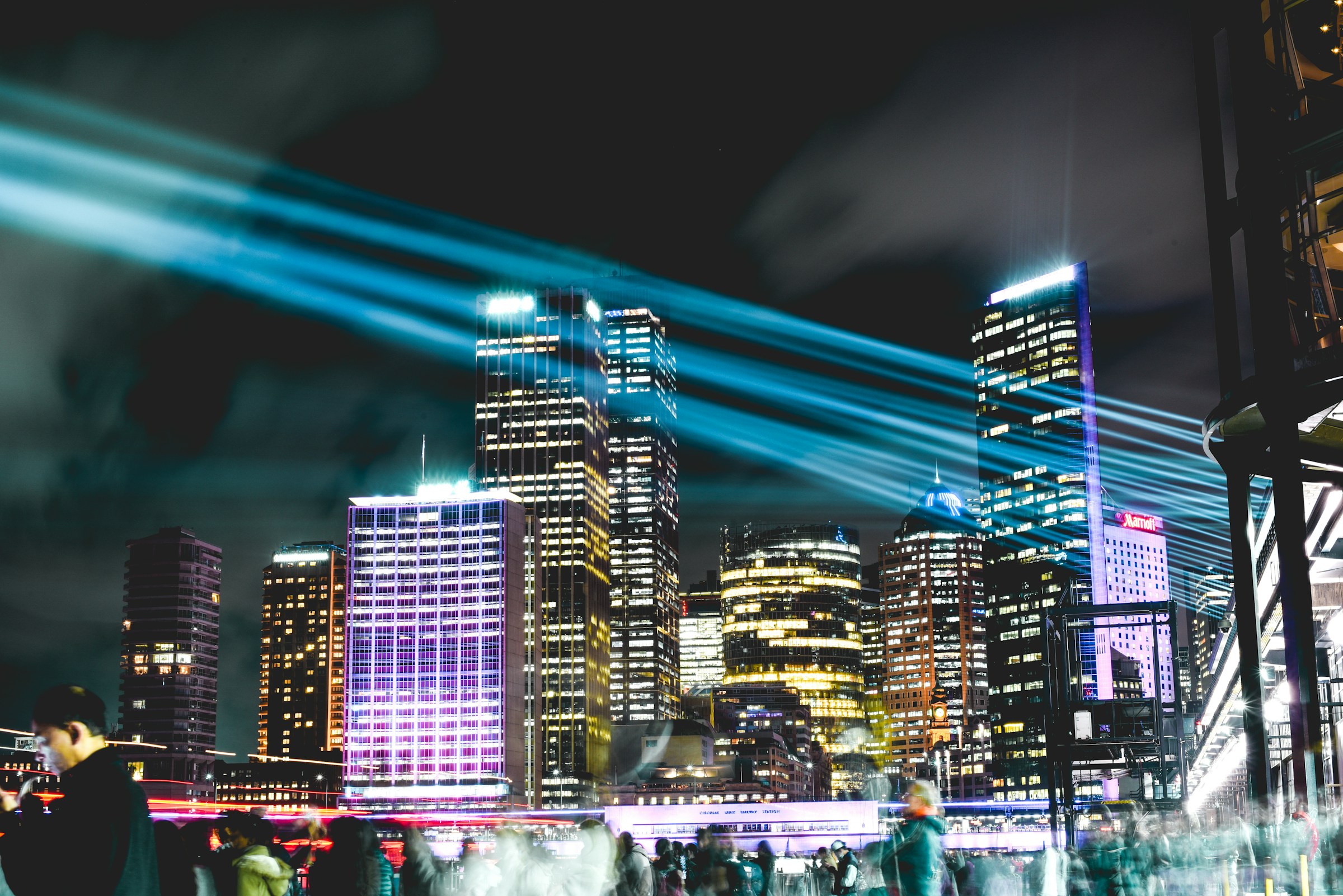Artificial Intelligence (AI) has emerged as a powerful tool for revolutionizing various industries, and the building industry is no exception. The integration of AI and IoT (Internet of Things) has led to the development of smart buildings. These are structures that use interconnected technologies to control, monitor, and optimize building operations and maintenance. AI’s role in these systems is becoming increasingly significant as we strive for energy efficiency and sustainability in our future cities.
The Emergence of Smart Buildings
The dawn of AI and IoT has ushered in a new era of smart buildings. These structures can self-regulate their energy consumption, identify maintenance needs in real-time, and offer a significantly improved user experience.
Additional reading : What Are the Latest Trends in UK’s Real Estate Financing?
Smart buildings are the epitome of technological advancement in the building industry. IoT devices collect data from various systems within the building including lighting, heating, air conditioning, and security systems. These devices then communicate with AI algorithms which analyze the data and make decisions to optimize the building’s performance.
AI-driven systems in smart buildings can also predict and diagnose potential issues before they result in significant damage. This predictive maintenance capability can save building owners a substantial amount of money in repairs and downtime.
Also read : What factors drive property price fluctuations in the UK?
AI and Energy Management
One of the significant areas where AI plays a crucial role in smart buildings is energy management. As we become more conscious of our energy consumption, AI-driven systems in smart buildings can help to significantly reduce energy usage and create sustainable living and working spaces.
By analyzing the data from various systems within the building, AI algorithms can make intelligent decisions about energy use. For example, they can adjust lighting and heating systems based on the occupancy and usage patterns of the building. This not only reduces energy waste but also creates a more comfortable environment for occupants.
Moreover, some AI systems can even predict future energy consumption based on historical data and current conditions. This predictive capability allows building managers and owners to better plan their energy usage and reduce costs.
The Power of Real-Time Data
The power of AI in optimizing the efficiency of smart buildings lies in its ability to process and analyze vast amounts of real-time data. At any given moment, a myriad of IoT devices are collecting data from various systems within a smart building.
AI algorithms can process this data in real-time, allowing for immediate adjustments to building systems. This not only improves the efficiency of these systems but also enhances the overall user experience. For example, if the AI system detects an unusually high level of carbon dioxide in a conference room, it can immediately adjust the ventilation system to improve air quality.
Moreover, real-time data allows for predictive maintenance. AI systems can identify potential issues before they become significant problems, reducing downtime and repair costs.
Building Intelligence for the Future
As we look towards the future of smart buildings, AI will undoubtedly play an increasingly significant role. Beyond efficiency and maintenance, AI-driven systems will shape the experience of building occupants.
By learning from user behavior and preferences, AI systems can personalize the building environment for each occupant. From adjusting lighting and temperature to controlling security systems, AI can ensure each user’s comfort and safety.
Additionally, as urban populations continue to grow, smart buildings will become essential for managing resources effectively. AI systems will continually optimize building operations to ensure sustainability, making our cities more livable and environmentally friendly.
In conclusion, AI is revolutionizing the building industry. From optimizing energy usage and performing predictive maintenance to improving the user experience, AI-driven systems are making our buildings smarter and more sustainable. As we continue to innovate and integrate AI into our building operations, the future of smart buildings looks brighter than ever.
A future where buildings are not just structures, but intelligent entities capable of learning and adapting to our needs. A future where buildings contribute to our sustainability goals, rather than detract from them. A future where we live and work in harmony with our built environment, guided by the power of AI. This is the future that smart buildings, powered by AI, promise to deliver.
Harnessing Renewable Energy through AI
Harnessing renewable energy and optimizing its consumption is an integral part of smart building design. With the advent of Artificial Intelligence, this has become a much easier task. AI algorithms, in conjunction with IoT devices, can analyze the various data points of a building’s energy consumption. This data-based analysis can help in better utilization of available renewable energy resources like solar and wind power.
These IoT devices can gather data from various components of a building’s electricity supply system, such as solar panels and wind turbines, and feed it to the AI system. This data includes various parameters like power generation capacity, storage levels, and consumption patterns. The AI system can then make intelligent decisions on how to best utilize these resources.
For example, on bright sunny days, the AI can decide to store excess solar power generated for use during peak consumption hours or during non-sunny days. Similarly, the AI can monitor wind speeds and decide when to use wind power optimally.
This AI-driven energy optimization has several benefits. It results in significant savings in energy costs, reduces dependency on non-renewable energy sources, and reduces the carbon footprint of the building. It also contributes to the overall goal of making smart buildings more energy-efficient and sustainable.
AI, Machine Learning and Data Analytics: The Triad Powering Smart Buildings
The confluence of artificial intelligence, machine learning, and data analytics is what drives the optimization of smart buildings. AI algorithms, bolstered by machine learning, can learn from historical data to predict future energy consumption patterns and make smart energy-saving decisions.
AI, combined with machine learning, provides the ability to learn and improve from experience without being explicitly programmed. This means that the more data these systems are exposed to, the better they get at optimizing energy consumption.
Machine learning algorithms can analyze past and present data to identify patterns and trends in energy usage. They can predict when energy demand will be high or low and adjust building systems accordingly. For example, if the system recognizes a pattern of lower occupancy on Fridays, it can adjust heating and lighting systems to conserve energy.
Data analytics, on the other hand, involves analyzing raw data to find trends and answer questions. This is crucial for understanding how energy is being used in the building and where improvements can be made. With the help of data analytics, building managers can make informed decisions about energy management and efficiency.
The future of smart buildings, powered by Artificial Intelligence, is promising and exciting. AI is revolutionizing the way we manage and optimize our buildings. By maximizing energy efficiency, reducing waste, and improving occupant comfort, AI is making our buildings smarter and more sustainable.
The integration of IoT and AI has given birth to smart buildings, which are not only energy efficient but also proactive in maintenance and personalized for occupants. AI-driven systems in these buildings analyze real-time data from various building systems and make intelligent decisions to optimize energy usage and improve occupant comfort.
Moreover, AI and machine learning, coupled with data analytics, are helping building managers make informed decisions about energy management. They are also playing a crucial role in harnessing renewable energy and making our buildings more sustainable.
As we continue to innovate and strive for sustainability, the role of AI in optimizing the efficiency of smart buildings will become even more significant. Our buildings will continue to evolve from being mere structures to intelligent entities, learning and adapting to our needs.
In essence, the future of smart buildings is a future where we live and work in harmony with our built environment, guided by the power of AI. This is a future where buildings contribute to our sustainability goals, rather than detract from them. This is the bright future that AI is promising to deliver for smart buildings.

